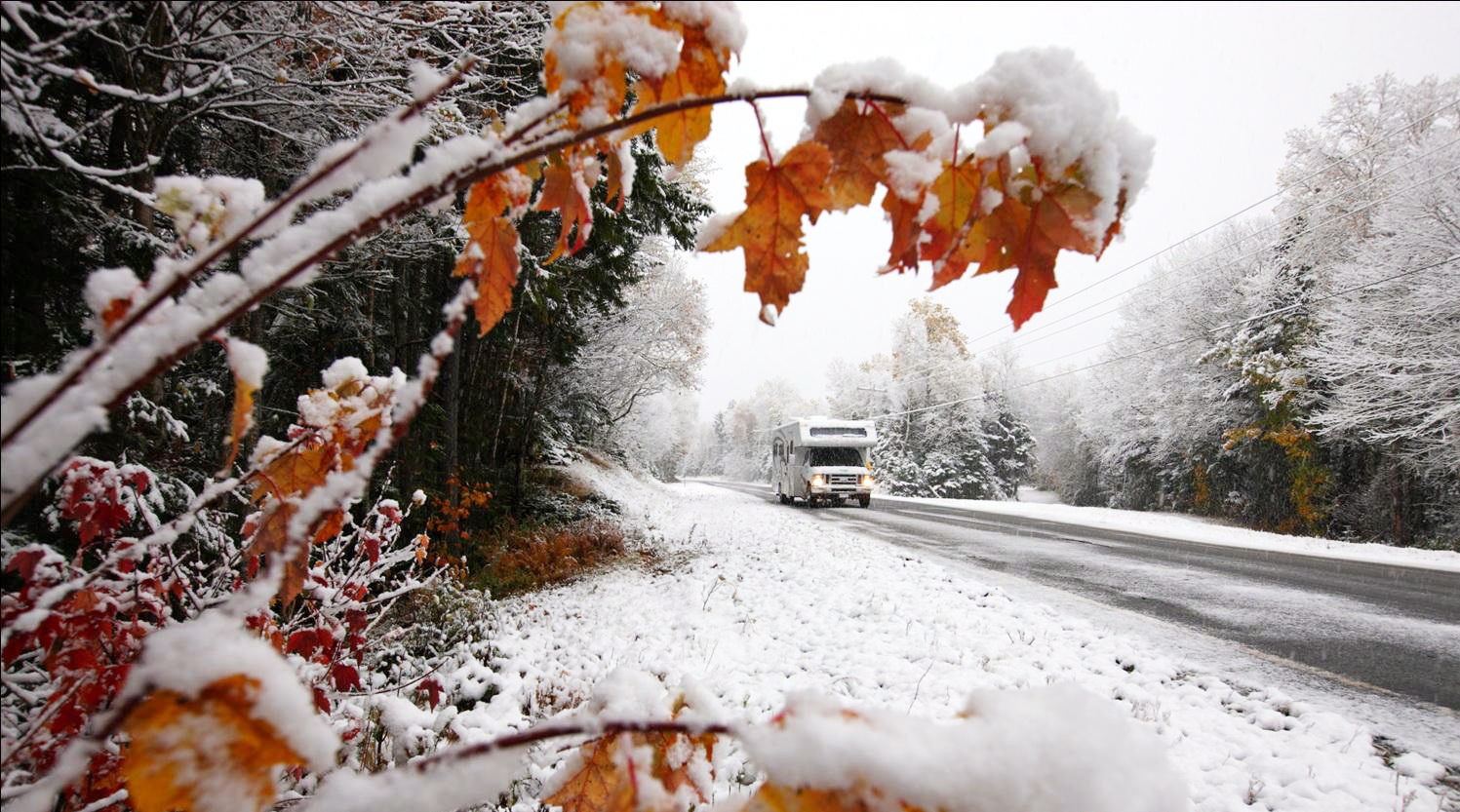
We know that weather can either make or break a camping trip. Sunshine and blue skies are what make RV trips a fun experience, but we can't always be lucky. Every once in a while a storm or unexpected temperatures sneak up on us, and it is important that we are fully prepared for when nature is having an "off" day. Extreme weather is more dangerous to us while in an RV than in houses. Here are some severe weather tips for RVers for when the going gets tough.

In any case, the most important thing you should do, is keep yourself updated on the most current weather as much as possible to avoid surprises and prepare yourself for any bad weather that may be on its way if you are not able to escape it.
As with any emergency, you want to make sure you are prepared ahead of time. Create an emergency plan for every situation and make sure your family knows the procedures. Write out the procedures and have them either posted or stored somewhere for easy access in your RV.
Seek shelter long before the weather gets extremely bad. No possession is worth more than you and your family. The worst thing you can do is wait around to see the actions of others, wait for rescue, or even wait until last minute to know what kind of weather is going to hit.
Prepare an emergency supply kit/grab bag and place it somewhere in your camper that is easy and accessible. In your kit you should include: a portable weather radio, whistles, extra blankets, rain ponchos, non-perishable packaged/canned food, can opener, flashlights, a flare gun, a first aid kit, necessary prescription drugs, a compass, pet supplies/food, bottled water, etc.Know what county you are in and the counties surrounding you. When you hear weather alert messages on radios and televisions, you'll be able to determine where the storm is and how fast it will approach your current location.
When bad weather takes out cell phone coverage, internet, etc., sometimes radio stations can be a big help. The NOAA (National Oceanic and Atmospheric Administration) and NWS (National Weather Service) provide all of the information you need to know for updates, incoming storms, and emergency radio station lists. If you have mobile coverage or internet during a storm, these are great resources for your safety. If not, it would be wise to jot some of the radio stations down if you know a storm is coming. Keeping a weather alert radio in your RV is a smart decision as well. Here's an NOAA battery operated alert radio with an automatic alert mode, iPhone charger, internal flashlight, and more that you can easily store in your RV:

Top Rated Mobile Weather Apps: Dark Sky, WeatherBug, AccuWeather, The Weather Channel


Click here for other useful apps for RV Travel
RVing in Lightning
• Lightening kills more people annually than tornadoes or hurricanes
• Taking shelter inside any building or vehicle is much safer than being outside; try not to touch any exposed metal if you are taking shelter in a vehicle.
• Rain does not signify the beginning of a dangerous storm; thunder does. Anytime you hear thunder you’re at risk of a lightning strike. Close your awning, store anything that can blow away, and get indoors as soon as you can.
• Beware of wildfires due to lightning strikes. Know the safest way out if you are in a woods or fire-prone area.
• Lightning strikes can damage the electrical power in your unit, so it's a good idea to keep an alternative form of communication or alert system on hand.
RVing in Blizzards/Snowstorms
An inclement weather situation is one of the most difficult to deal with. Though these useful tips aren't relevant for most RVers at the moment, save them for when those frigid winter months roll around!
• Make sure your RV is properly Winterized before hitting the road.
• Keep snow tires/chains, extra blankets, extra food and extra fuel on hand
• Check to make sure your windshield wipers are working properly and aren’t streaking, check your brake lights and headlights, make sure you have plenty of gas (which also helps to add additional weight), and also make sure your tire pressure is right to avoid hydroplaning
• Make sure to carry tire chains with you at all times
• Always keep a pair of thick gloves and a hat with you
• Wearing multiple layers of light clothing will keep you warmer than one heavy layer

RVing in Floods and Heavy Rainfall

RVing in a Tornado

RVing in Extreme Heat
These tips are extremely relevant and helpful in the now, as July and August can be one of the warmest parts of the year in North America.
RVing in a Hurricane
Because Campers Inn customers are mainly located on the East Coast, we know that facing a hurricane while traveling in an RV can be a serious threat. Here's some tips on how to deal while traveling in an RV.
RVing with Pets
Be sure to include your pets in your emergency plans as well. Keep a leash around, and keep them collared and ID'ed at all times. Familiarize them with their carriers and cages so they will be more willing to cooperate with confinement if the need to carry them arises. Check out our blog post for more Tips for RVing with Your Pet.
Hopefully you feel a little more prepared for bad weather while RVing after reading these tips! Let us know of any other suggestions you may have for other RVers, and what has or hasn't worked for you in the past! Enjoy your trip, and safe RV travel, no matter what type of weather you encounter.
Like what you read? Sign up for our blog to receive tips, tricks and information on sales directly to your inbox!




